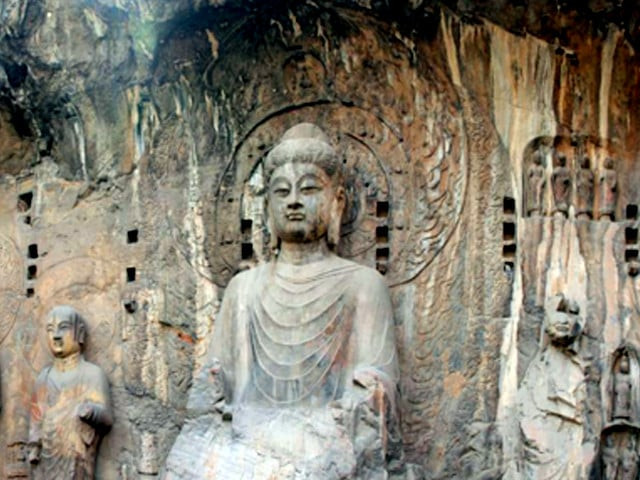China seeks conservation of grotto temples in Pakistan
Beijing's cultural administration earlier signed agreements with Islamabad for cross-border exchange

China’s National Cultural Heritage Administration has said that closer links will be forged between the Chinese grotto temples and their overseas counterparts along the ancient Silk Road.
Earlier this year, the national administration signed cooperation agreements with its counterparts in Pakistan, Afghanistan and Iran to improve cross-border exchanges on the conservation of grotto temples.
“This would improve people-to-people connectivity,” Director of China National Administration Li Qun projected while addressing a conference, China Daily reported on Monday.
A total of 635 grotto temples have been newly found across China in the first nationwide investigation on the status of these ancient sites.
According to the study, which was launched in September 2020, there are 5,986 grotto temple sites in the country.
Also read: Jandial Temple – relic of an ancient faith
In the list, 288 sites have been registered as national-level key heritage sites, and 417 were under provincial-level protection. The investigation was conducted by over 2,400 researchers in 28 provincial-level regions.
Grotto temples, which are religious sites carved into mountains or rock, were introduced to China along the ancient Silk Road in the 3rd century, and gradually became a key form of Chinese Buddhist art in the following millennium.
In 2019 and 2020 on various occasions, Chinese President Xi Jinping emphasised the importance of the study and preservation of such sites to demonstrate their philosophy and values, as well as the history of Sino-foreign cultural communication.
In October last year, China’s State Council released the country’s first national-level guidance for the protection of grotto temples. A blueprint to protect and study grotto temples in China during the 14th Five-Year Plan (2021-25) was released by the National Cultural Heritage Administration earlier this month.
According to Li Qun, 14 provincial-level administrative regions had also drafted their own detailed plans for the protection of grotto temples since 2020. A group of new institutions and academies overseeing the sites had been newly established in provinces such as Sichuan and Shaanxi.
The wide geographic distribution of the sites, many of which are in remote areas, and their age make the efforts to protect them all the more challenging.
Also read: Pakistan set to reopen Lahore's famous Jain temple
For example, in Sichuan, over one-third of the province’s grotto temples face the potential hazard of unstable rocky foundations.
A lack of facilities and personnel taking care of and studying these sites is another problem. In Sichuan, research academies have been established to deal with just five sites, and only 112 grotto temples across the country have dedicated security facilities.
In most provinces, no more than 10 per cent of their grotto temples are regularly supervised by teams of professionals.
As many as 3,361 grotto temples, over half of the total, have not been registered as any level of key protected units.
Li vowed that the protection and conservation of the medium- and small-scale grottoes will be a focus during the 14th Five-Year Plan period. A national-level database to oversee the registered sites is also due to go online.
In addition, the protection of these sites can also be part of the broader effort to revitalise rural areas through tourism.



















COMMENTS
Comments are moderated and generally will be posted if they are on-topic and not abusive.
For more information, please see our Comments FAQ